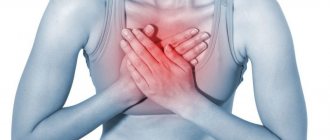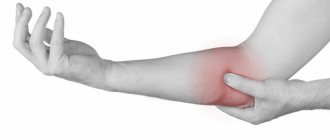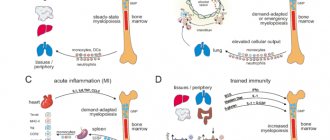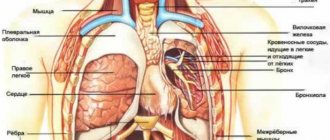More about the condition
Pain when urinating is a common symptom of urological disorders.
An unpleasant sensation may appear immediately during urine output and persist after visiting the toilet. Discomfort can also be caused by the urge to urinate, ejaculation, defecation and other physiological processes. An important sign is the localization of pain: in most cases, irritation affects the distal end of the urethra, but patients often complain of pain radiating to the lower abdomen and perineum. All characteristics of the symptom must be clarified during diagnosis to select the necessary examinations. In the medical literature, urinary dysfunction is called dysuria. This term usually describes fluid retention in the bladder, but pain when passing urine is also a sign of a deurination disorder. This condition can occur during an infectious process, injury, oncology and other diseases. However, not in all cases, dysuria indicates damage to the urethra, since pain can spread to the area of the urethra from other parts of the excretory system.
Causes of pain when urinating in women
Some diseases characteristic of women cause pain when urinating. These include:
- Inflammation in the genital organs - vaginitis, colpitis, cervicitis. In addition to abnormal vaginal discharge, itching, burning of the mucous membrane, dysuric phenomena are also observed - pain, cramps when urinating, frequent urges. Any of these symptoms require a visit to the gynecologist. At the SM-Clinic in Moscow, experienced gynecologists will prescribe optimal treatment and advise on all issues of contraception, including individual selection of contraceptives.
- Candidiasis – observed with the intense growth of fungi of the genus Candida. The main symptom is discharge and itching in the vagina and external genitalia, but is often accompanied by pain and cramping when urinating. Men also get thrush, but most often it is asymptomatic.
Urination is normal
The main function of the excretory system is to cleanse the body and maintain metabolism. The kidneys constantly filter blood that enters the nephrons through the artery. A system of small capillaries and tubules ensures the removal of unnecessary components from the blood and the preservation of useful substances, such as proteins and ions. As a result, secondary urine is formed, transported to other parts of the excretory system for subsequent excretion.
Physiological role of urination:
- Regulation of fluid volume in the body.
- Removing protein breakdown products and harmful metabolites.
- Regulation of the constancy of the chemical composition of the internal environment.
- Maintaining metabolism.
From the kidneys, the resulting urine enters the ureters and accumulates in the bladder. This muscular organ can deposit up to 500 milliliters of fluid, but normally a person feels the urge to urinate when 100-120 ml of urine has accumulated. The final removal of fluid occurs through the urethra: the person independently relaxes the muscular sphincter, and the bladder is emptied. Moreover, the speed and intensity of fluid secretion in men depends on the condition of the prostate gland, through which part of the urethra passes.
Diagnostics and treatment in our clinic
If you feel discomfort and pain when urinating, this should be a good reason to contact a urologist. In our clinic, to find out the causes of this condition, you may be prescribed the following studies:
- clinical urine test
- bacteriological examination of urine
- smears on flora
- PCR analysis to detect sexually transmitted infections
- Ultrasound of the pelvic organs and ultrasound of the prostate gland for men
- cystoscopy.
Based on the results of the studies, treatment will be prescribed aimed at eliminating the main cause of discomfort. This may be antibiotic therapy prescribed for inflammatory diseases of the genitourinary tract. The choice of specific medications for the treatment of certain pathologies that cause discomfort when emptying the bladder is always made on an individual basis. If you have urolithiasis, you will most likely be prescribed medications to help break up and remove stones. For large stones, their crushing is carried out using ultrasonic equipment.
Infection and inflammation
Discomfort during deurination may indicate damage to any part of the excretory system. Most often this is a sign of an inflammatory process associated with the penetration of pathogens into the urethra or bladder. The infection can be caused by an invasion of bacteria, viruses, fungi and even protozoa.
Inflammatory etiologies:
- Urethritis is an inflammation of the tissues of the urethra. In most cases, the inflammatory process is a consequence of a bacterial infection.
- Cystitis is inflammation of the bladder. This is a very common urological disease among women, manifested by dysuria, pain in the pubic area and fever.
- Sexually transmitted infections. Dysuria can be caused by chlamydia, gonorrhea, herpes or other sexually transmitted pathology. Without treatment, the infection can spread to the internal genital organs and cause severe complications.
- Pyelonephritis is an inflammatory process in the kidney tissue. The main symptom of this disease is lower back pain, but many patients also complain of painful urination.
- Inflammation of the prostate gland (prostatitis). This pathological condition is often diagnosed in older men.
- Infections of the external and internal genital organs in women. Thus, bacterial vaginitis often manifests itself as discomfort during urination.
The nature of the pain depends on the characteristics of the infectious agent.
Why does the urethra hurt?
Urethritis
Urethritis is a group of diseases, usually of an infectious nature. Less commonly, pathology develops against the background of allergies, toxic or radiation exposure. The main manifestations are itching, burning and pain when urinating, pathological discharge from the urethra. The clinical picture varies somewhat depending on the type of pathogen:
- Nonspecific urethritis.
In acute primary inflammation, the symptoms are moderate, the discharge is mucopurulent or purulent in nature. In patients with chronic urethritis, there may be no pain, minor burning and itching are noted. Secondary inflammation occurs against the background of general infections and is accompanied by mild pain during urination and scanty mucopurulent discharge. - Gonorrhea.
Signs appear 3-7 days after sexual contact with an infected partner or (less commonly) domestic infection. Acute urethritis manifests suddenly. It manifests itself as cutting, pain and burning in combination with profuse purulent grayish-yellow creamy discharge. When the process spreads to the posterior part of the canal in men, the body temperature rises to febrile levels. In the chronic form, the pain is tingling and occurs only at the beginning of urination. - Trichomoniasis and chlamydia.
For these variants, an erased, asymptomatic course is typical. Itching and burning predominate, pain is insignificant or absent. With trichomoniasis, the discharge is foamy, whitish, with chlamydia – yellowish, watery or mucopurulent. Patients with chlamydia may develop Reiter's syndrome. - Candidal urethritis.
It is also asymptomatic. Mild itching and slight burning are complemented by scant whitish discharge, sometimes by short-term, low-intensity painful sensations when urinating.
Nonspecific bacterial, less often specific inflammation occurs not only in adults, but also in young patients. Patients aged 2-4 years are most susceptible to pathology. Urethritis in children is manifested by pain and burning during the passage of urine, sometimes by dull nagging pain in the lower abdomen. Sudden painful urges and frequent urination, including at night, are possible.
Urethral stones
Men are more often affected. Secondary stones predominate, descending into the lumen of the urethra from the kidneys or bladder. Traumatization of the walls of an organ by a moving stone is accompanied by sudden intense sharp pain. Difficulty urinating, weakening and dispersion of the stream, and hematuria are observed. Complete obstruction is manifested by acute urinary retention. Men with posterior urethral stones complain of pain when sitting and walking.
Foreign bodies and injuries
Foreign objects in the urethra are more often found in children and young men. The first category introduces foreign bodies out of curiosity, the second - during masturbation. With small smooth objects, slight pain and discomfort are observed, which gradually decrease, but reappear with sexual arousal and urination.
Sharp and large objects cause sharp pain, strong urges, severe anxiety, hematuria, and if the urethra is obstructed, bloody discharge. Subsequently, urethritis often develops with pain and burning in the urethra, perineum and penis, general hyperthermia, and intoxication syndrome.
Men also predominate among injured victims. In half of the cases, pathology occurs with severe pelvic fractures. An incomplete rupture is characterized by acute pain, cramps, difficulty urinating, blood in the first portion of urine, hematomas of the scrotum and perineum. With complete ruptures, urine does not come out. Patients complain of sharp pain in the urethra and lower abdomen, and ineffective imperative urges.
Urethral pain
Neoplasms
Epithelial (condylomas, papillomas) and non-epithelial (fibromas, fibroids, angiomas, etc.) benign tumors are asymptomatic for a long time. Then itching and burning, discomfort and pain when urinating, changes in stream, contact bleeding and blood in the urine appear and slowly increase. When infected, the pain intensifies and cramps are noted. Dyspareunia is possible in women.
Polyps most often occur in people over 45 years of age. Clinical manifestations resemble urethritis or cystitis. Burning and painful sensations in the urethra appear when passing urine, during walking and sexual intercourse. A type of polyp is a caruncle, which develops in women during menopause. There is pain during and after urination, increased urge, spraying of the stream, and sometimes urethrorrhagia. The pathology is often complicated by prolonged severe cystitis and urethritis, severe dyspareunia.
Malignant tumors in men are characterized by difficulty urinating, the presence of induration, urethrorrhagia, and purulent discharge. Pain appears as the process spreads, radiates to the perineum, is combined with swelling of the penis and scrotum, and inguinal lymphadenitis. Women with urethral cancer experience pain and burning in the urethra, dyspareunia, urethrorrhagia, and urinary incontinence. When neoplasia moves to the vagina, pain occurs above the womb.
Chronic obstruction
Formed with valves and strictures of the urethra. Urethral valves most often occur in early childhood, and are less common in adult men who have undergone urological operations and manipulations. Patients are concerned about moderate pain when urinating, sluggishness of the stream, and night urges. Among patients with urethral strictures, there is a 2-4-fold predominance of men. Pain is an optional symptom and occurs against the background of weakening and splashing of the jet, a feeling of incomplete emptying of the detrusor.
Urethral diverticula
Pain in the urethra and inguinal-iliac region, combined with incontinence, pollakiuria, and dysuria, is observed with complicated diverticula. Typically difficult, painful urination in an intermittent stream with persistent urge and leakage of urine even after emptying the bladder. Pyuria and hematuria are possible. Large diverticula make sexual intercourse difficult due to swelling and pain in the vagina.
Prolapse of the urethral mucosa
Diagnosed in teenage girls and menopausal women. Patients complain of a feeling of a foreign body, followed by a burning sensation and pain. In the area of the external opening of the urethra, a painful bluish or pinkish dense formation is detected. Painful frequent urges are noted, and urinary incontinence is possible. With swelling of the mucous membrane, acute ischuria develops.
Other urological pathologies
Pain and pain in the urethra are accompanied by many bladder diseases:
- Cystitis:
acute, chronic, postcoital, interstitial. - Space-occupying formations:
urachal cysts, benign tumors, carcinomas. - Emergency conditions:
traumatic injuries and foreign bodies of the bladder, acute urinary retention, paracystitis. - Cystolithiasis.
Andrological diseases
Pain in the urethra is especially pronounced in acute prostatitis. It is associated with pain in the perineum and sacral area, sometimes radiating to the anus. Pain and increased frequency of urination are noted, urinary retention and difficulty defecating are possible. With chronic prostatitis, pain in the urethra, above the pubis, in the groin and perineum is aching, constant, and intensifies at the initial and final stages of urination.
Pain in the urethra with prostatitis in children appears during urination, complemented by constant nagging pain and discomfort in the perineum, lower abdomen, extending to the scrotum and rectum. Along with prostatitis, pain in the urethra sometimes accompanies prostate cancer and prostate adenoma, which develop mainly in old age. Pain occurs during ejaculation or urination. Combined with pain in the pelvis, perineum, above the pubis, dysuria and ischuria.
Women's diseases
80% of women with paraurethral cysts experience frequent urges, pain in the urethra, pain, burning, and mucous discharge from the urethra. An elastic formation can be felt in the meatus area. Another cause of pain, severe discomfort, burning and stinging when passing urine can be vestibulovaginal hypospadias.
Urethrocystoscopy
Other reasons
Not in all cases, discomfort during urine output is associated with infection. Structural diseases can also cause dysuria.
Additional reasons:
- Urolithiasis is the formation of stones in the urinary tract. Stones not only make it difficult to pass urine, but also damage the mucous membranes, resulting in pain.
- Oncology. The growth of a malignant or benign tumor in the urinary tract can cause severe pain. This can be a relatively harmless disease, such as urethral polyps, or an aggressive variant of oncology with a poor prognosis.
- Abnormal narrowing of the lumen of the urethra (urethral stricture). In the presence of such a disease, urination becomes not only painful, but also very difficult.
- Formation of stones in the kidney tissue (renal stones). Small stones spread with urine into the underlying parts of the excretory system.
It is advisable to conclude that dysuria can occur in a large number of urological disorders, so it is impossible to clarify the cause of the symptom without further examination of the patient.
Causes of pain in men.
Pain when urinating can be caused by:
Prostatitis.
The inflammatory process in the prostate often spreads to the urinary system, which provokes pain, pain and burning during and after emptying the bladder. Pain also occurs in the perineum, scrotum, sacrum and lower back.
BPH.
A benign tumor in the prostate gland puts pressure on the organs of the urinary system, making it difficult to pass urine and causing pain.
Prostate atrophy.
With overly active sexual activity, the prostate gland is depleted, which contributes to the unhindered proliferation of pathogenic bacteria and the development of prostatitis, and, consequently, pain when going to the toilet.
Malignant neoplasms of the prostate.
Tumors can put pressure on the urethra, pinching it, which makes urination difficult and accompanied by pain.
Urogenital tuberculosis.
For a long time, the only symptoms of the disease may be pain when emptying the bladder and periodic decrease in potency.
Phimosis.
When the foreskin narrows, the genitourinary tract becomes inflamed, which causes pain during urination and erection.
Balanoposthitis.
Inflammation covers the foreskin and head of the penis, which causes painful evacuation.
Orchiepididymitis.
It combines two inflammatory diseases that occur simultaneously: orchitis (affects the testicles) and epididymitis (affects the appendages). As a result, a man may experience pain when urinating.
Vesiculitis.
With inflammation of the seminal vesicles, the main symptoms are cutting pain when emptying the bladder and the presence of blood in the urine.
Risk factors
In addition to certain diseases that affect the process of urine excretion, urologists take into account the significance of various forms of predisposition to dysuria. These may be individual characteristics of a person, diseases of distant organs and other signs.
Possible risk factors:
- Taking certain medications. Thus, the use of chemotherapy often leads to dysuria.
- Gender. Women have a shorter and wider urethra, which increases the risk of genitourinary infections.
- Age. Discomfort in the urethral area is typical for older people.
- Recent diagnostic or therapeutic interventions in the urethral or bladder area. This may involve taking a smear, urography, or another procedure.
- Improper use of personal hygiene products. Penetration of soap into the urethra leads to irritation of the mucous membrane of the organ.
- Allergies to personal care products, synthetic materials and other items.
- Congenital anatomical defects of the excretory system.
Before making a diagnosis, you need to make sure that the pain is not associated with the above factors.
Trichomonas urethritis.
Caused by Trichomonas vaginalis, which belongs to the protozoa, flagellates; This is a single-celled parasite that reproduces by longitudinal division, grows well in anaerobic conditions, and quickly dies outside the human body. Trichomonas, entering the urethra, is fixed on the cells of the squamous epithelium of the mucous membrane and penetrates the body through the intercellular spaces due to the presence of proteolytic enzymes (hyaluronidase, amylase, etc.) on its surface, then moves subepithelially into the connective tissue, from where it lymphogenously enters the genitourinary organs .
Trichomonas is transmitted sexually. Household transmission of infection is rare. It can persist in urine for up to 24 hours, in semen for several hours, and survive in wet underwear. The incubation period for trichomonas urethritis is on average 5-15 days. There are the following forms of trichomoniasis: acute, subacute, chronic, trichomoniasis.
In the acute form, the inflammatory process proceeds violently with copious mucous-foamy discharge on the first day and mucopurulent discharge from the urethra from the second day with frequent and painful urination.
In subacute urethritis, the symptoms are less pronounced, discharge from the urethra occurs in small quantities, and is purulent. The first portion of urine contains purulent flakes.
With chronic trichomonas urethritis, itching, burning, a crawling sensation in the urethra, and frequent urination come to the fore. Urethral discharge is scanty. Since in chronic urethritis the inflammatory process moves to the posterior urethra, complications develop in the form of prostatitis, vesiculitis, epididymitis, and with a long course, the formation of urethral strictures is possible.
Additional symptoms
Dysuria is rarely the only symptom of the disease. Urological disorders sometimes cause more serious disorders that constantly bother the patient.
Other pathological signs:
- irradiation of pain to the lumbar region, lower abdomen and perineum;
- the appearance of bloody urine (the fluid may be reddish or dark brown);
- unpleasant odor in urine;
- urinary retention: the patient must strain to empty the bladder;
- increased body temperature;
- burning in the area of the external genitalia;
- decreased libido;
- false urge to defecate;
- dizziness, constant weakness;
- nausea and vomiting.
The appearance of fever, severe pain and weakness indicates a serious illness. During pregnancy, an acute genitourinary infection can negatively affect the condition of the fetus, so a woman suffering from dysuria should visit a gynecologist or urologist.
Expert recommendations
We are often asked what to do if pain occurs during urination, how to help yourself and alleviate the symptoms at least a little. There is only one answer: see a doctor as soon as possible. You cannot take baths or apply a heating pad - in many cases, heat will only worsen the situation. In pregnant women, compresses increase the tone of the uterus and create a threat of miscarriage. You can take an antispasmodic, especially if the disease appears at night. Other medications are used only as prescribed by a doctor.
Make an appointment with a urologist at the MedEx clinic. Our doctors have extensive experience treating men and women with various urinary disorders.
Diagnostics
Urologists deal with any disorders of the excretory system. During the appointment, the doctor will question the patient in detail about symptoms and study medical history to look for risk factors for diseases. The initial examination sometimes reveals additional symptoms. An accurate diagnosis can be made only after receiving the results of instrumental and laboratory studies.
Diagnostic procedures performed:
- A blood test is the first test that needs to be done for dysuria. Detection of white blood cells in the urine suggests the presence of infection. In addition, the doctor evaluates the chemical composition of the urine.
- Blood test to detect additional pathologies. For example, detection of prostate specific antigen (PSA) in the blood serum of men may indicate prostate disease.
- Ultrasound imaging of the bladder, prostate and internal genital organs in women. Ultrasound is a completely safe non-invasive method of examining the genitourinary system.
- Endoscopic examination of the inner surface of the urethra and bladder.
- Urethral smear followed by cytological and microbiological examination of the material.
- High-precision imaging methods: radiography with contrast, computed tomography. Obtaining volumetric images may be preferable if cancer is suspected.
The doctor may prescribe a limited number of tests after examining the patient and studying the medical history.
Features of urethritis in men and women
Men (due to their anatomical structure - a longer and narrower urethra) feel the manifestations of urethritis earlier and more acutely, while a woman may not notice its symptoms at all. Men may experience redness and sticking of the sponges of the external opening of the urethra in the morning.
Urethritis in men
The cause of urethritis in representatives of the stronger sex can be the following factors:
- infection through sexual intercourse;
- hypothermia of the body;
- presence of stress;
- unbalanced diet with a lot of spicy, sour, salty foods;
- inflammatory process in the body;
- the presence of urolithiasis.
Chronic urethritis in men occurs rarely when the following conditions occur:
- untreated acute urethritis;
- expansion of the inflammatory process to the entire urethra and prostate gland;
- weakening of the immune system.
Urethritis in women
Compared to urethritis in the stronger sex, female urethritis appears as a result of various infections. If the disease is not treated, then due to the female anatomical structure, urethritis can quickly develop into cystitis.
Various infections play a major role in the disease of urethritis in women. Among the infectious types of urethritis in women, the most common is gonorrheal. Within 12 hours of infection, a woman may experience symptoms of acute urethritis. If left untreated, after 20 days the disease becomes chronic.
Quite often, women become infected with the following types of urethritis: chlamydial , trichomonas or candidiasis .
Candidal urethritis in women can occur with long-term use of antibacterial agents.
Typically, the first signs of the disease occur at the beginning of menstruation, the cessation of contraceptives, or the onset of menopause.
Treatment
Pain when urinating is only an individual symptom, so the root cause of the disorder should be treated after a thorough diagnosis. Depending on the identified pathology, the patient may require surgical or therapeutic treatment. Sometimes examinations do not allow us to determine the cause of the unpleasant sensation - in this case, the doctor will advise the patient to use safer hygiene products and give up bad habits.
Possible treatments for the causes of dysuria:
- The use of antibacterial drugs to destroy pathogenic bacteria. In case of chronic infection, it is recommended to test the sensitivity of microflora to certain medications.
- Antifungal and anti-inflammatory agents.
- Symptomatic therapy with painkillers and antispasmodics.
- Surgical and therapeutic interventions aimed at extracting stones, removing tumors and restoring patency of the urinary tract.
Thus, dysuria can be eliminated by treating the underlying cause of the symptom. In addition to the use of medications, patients are advised to give up alcohol, cigarettes, coffee and too spicy foods.
Treatment of pain when urinating
The doctor selects therapy after determining why the pain symptom occurred. For treatment the following is prescribed:
- Antibiotics. The drugs suppress inflammation and reduce unpleasant symptoms;
- Immunomodulators. Appointed at the discretion of the doctor. Immunotherapy helps to provide faster relief for patients with poor health;
- Antiseptic and diuretic drugs. Most often, products of plant origin are selected.
For urolithiasis, treatment tactics depend on the size of the stones. Small crystals are crushed with special medicines, large ones must be cut out.
Tumors and polyps also require surgery. Most operations are performed using minimally invasive methods, which allow the patient to be cured and the risk of postoperative complications to be reduced.










